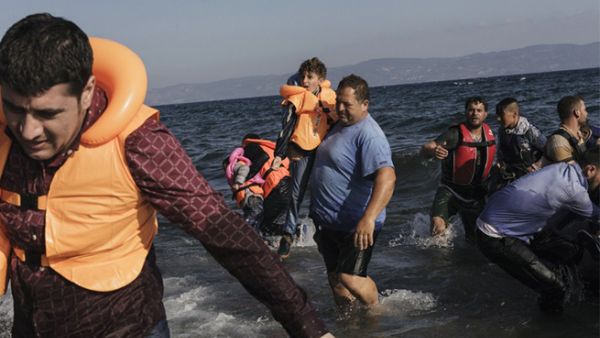Last September, when the body of 3-year-old Syrian refugee Aylan Kurdi washed up on Turkish shores, it seemed like the confounding refugee crisis spurred had finally become globally recognizzed and tangible.
Politicians promised bigger steps. Social media promised 'never again.' Some shot back at EU states for letting the problem go unabated, while others pointed fingers at rich Gulf countries for turning a blind eye to their war-torn neighbors.
Yet a similar scene is staring the world in the face again this week after over 30 Greece-bound refugees drowned off the coast of Turkey.
Turkish daily Hurriyet reported Tuesday the finding of at least 34 drowned migrants on and around the shores of Turkey's Aegean districts of Ayvalık and Dikili, marking the worst dinghy death toll of 2016 in the sea crossing.
The bodies of more than 30 migrants, including children, washed ashore from an unknown number of vessels after boats overturned during stormy weather, the newspaper reported. Though six people survived, Turkish rescue workers say they expect the death toll to rise.
Released on Jan. 5 by the International Organization for Migration, the last report of 2015 counted 3,771 migrant deaths at sea. Meanwhile, some 850,000 asylum-seekers landed in Greece from the crossing last year.
Unlike previous years like 2014, rough waters, freezing temperatures and an ever-uncertain asylum policy in the EU has not deterred tens of thousands from attempting the dangerous crossing.
Meanwhile, as the Syrian conflict and uncertainty elsewhere in the Middle East grinds on into the new year, this number will likely only increase.







